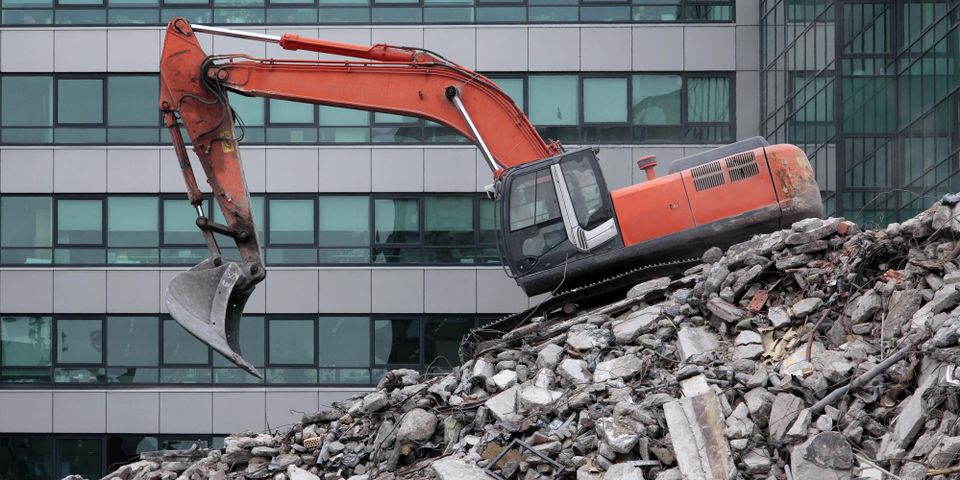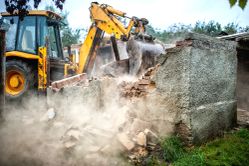
Commercial buildings don't last forever. Sometimes, old schools, shopping centers, hospitals, or other structures need to be torn down to make room for newer or safer buildings. However, commercial demolition involves far more than simply knocking a building down. There are proper techniques and even strict laws and standards that need to be followed. Before you begin planning your demolition project, here are some answers to frequently asked questions about the process.
Common Questions About Commercial Demolition
Are there different types of commercial demolition?
Depending on the structure being taken down, a team can choose from several types of demolition. The most common is mechanical demolition, which uses heavy equipment like bulldozers and wrecking balls. Deconstruction is also a popular method that includes carefully dismantling the structure to preserve materials. Explosion and implosion can also be used for demolition, but they're typically only used when mechanical demolition and deconstruction aren’t practical. For example, this method would be useful when demolishing a skyscraper or bridge.
What’s the difference between demolition and deconstruction?
 Demolition and deconstruction are similar in many ways, as they have the shared goals of dismantling a building, clearing a site, and recycling as much material as possible. Deconstruction involves dismantling structures by hand, making it more labor-intensive. Demolition uses sophisticated equipment to demolish the structure instead, including hydraulic equipment, wrecking balls, and explosives.
Demolition and deconstruction are similar in many ways, as they have the shared goals of dismantling a building, clearing a site, and recycling as much material as possible. Deconstruction involves dismantling structures by hand, making it more labor-intensive. Demolition uses sophisticated equipment to demolish the structure instead, including hydraulic equipment, wrecking balls, and explosives.
How does demolition affect the environment?
Environmental stewardship, including recycling and site cleanup, is an essential aspect of commercial demolition. In fact, surveys indicate that about 90% of the materials generated by demolition are recycled. A lot of demolition work also centers around cleaning up contaminated sites, asbestos abatement, and removing environmentally hazardous structures. For instance, commercial demolition often includes cleanup of brownfields, which are small areas containing pollution at old gas stations, dry cleaners, or manufacturing plants.
Who can provide commercial demolition?
Under federal law, any demolition project involving asbestos must be completed by a certified contractor. Each state also has its own demolition requirements and laws that must be followed. For example, Hawaii has specific environmental regulations related to demolition that are mandated by law. No matter how big or small your commercial demolition project is, it’s best to consult a professional company to ensure operations are safe and legal.
If you’re planning a major construction project, count on Rojac Construction Inc. for your demolition services. Based in Wailuku, HI, this fully licensed and ensured civil engineering company has served Maui businesses for over 20 years. Learn more about the company’s role in the community online, or call (808) 986-1105 to schedule a consultation.
About the Business
Have a question? Ask the experts!
Send your question

